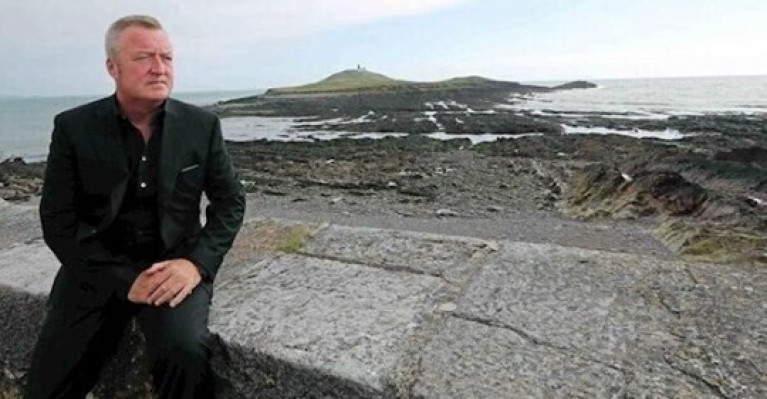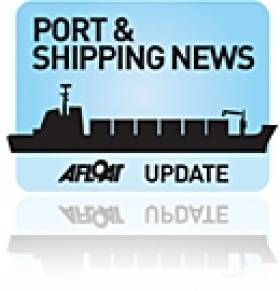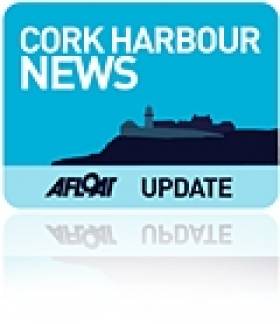Displaying items by tag: Green energy
Proposal to Transform Moneypoint Power Plant into Offshore Wind Production Base Goes Before Planners
RTÉ News reports that the ESB has put before planners its proposal for an offshore wind turbine production base at its Moneypoint plant.
The pre-consultation on the planned facility, envisaged as part of the ESB’s multi-billion-euro Green Atlantic @ Moneypoint programme, will continue till June but formal plans are not expected to go before An Board Pleanála until 2024.
“Moneypoint will become a centre for the construction and deployment of floating wind,” a spokesperson said of the proposed facility, part of the ESB’s plans to evolve the West Clare station from coal power into a green energy hub.
The State-owned power company outlined benefits of the site such as its existing deepwater access, and its potential to “a significant number of direct jobs in the Mid-West region”.
Elsewhere, a Dutch offshore energy firm is proposing a £1 billion investment off Northern Ireland that could generate power for up to half a million homes.
As the Belfast Telegraph reports, SBM Offshore says it is investigation two sites in the North Channel for a series of “new generation floating wind turbines”.
“The two sites would generate a combined 400MW, representing 13% of Northern Ireland’s energy needs and up to 57% of domestic requirement,” project director Niamh Kenny said.
The Belfast Telegraph has more on the story HERE.
Ireland’s First Green Hydrogen Facility Planned for Cork Harbour Moves Into Concept Design Phase
One of the world’s leading providers of engineering, procurement and construction services to the energy industry has been appointed by energy company EI-H2 to help develop Ireland’s first commercial scale green hydrogen production facility.
Worley will soon enter the concept design phase of plans for the 50-megawatt plant that will be located in Aghada, close to lower Cork Harbour.
It will see green hydrogen produced by electrolysis, powered by renewable energy. Once operational, the facility is expected to supply over 20 tonnes of green hydrogen per day to a diverse commercial market and remove 63,000 tonnes of carbon emissions annually.
The project — which as previously reported on Afloat.ie will be one of the largest green energy facilities of its kind in the world — will also generate job creation in the local area and assist in meeting the targets of Ireland’s recent Climate Bill which mandates emissions reductions of 51% by 2030.
Worley’s technical and commercial experts will be developing the concept design for the facility, utilising best practice from similar projects around the globe to accelerate project delivery and achieve the earliest possible commercial production date, supporting Ireland in its ambition to become a leader in green energy.
With a portfolio of future projects in the pipeline for Ireland, this first-of-its kind project also marks the start of many planned developments for EI-H2.
“We are delighted to partner with Worley as we look to deliver Ireland’s first green hydrogen production facility in Aghada, Co Cork,” said Tom Lynch, chief executive of EI-H2. “We firmly believe that Ireland is incredibly well positioned to become a global leader in green energy.
“At EI-H2, we believe in partnerships that last. In that context, Worley are the natural choice to develop this key infrastructure.”
Eoghan Quinn, vice president of power and new energy at Worley, added: “This is an exciting opportunity for Worley to apply our vast experience in delivering the world’s most ground-breaking green hydrogen projects to the Irish market.
“As more renewable energy comes online, Ireland has a strategic role to play in decarbonising Europe. We continue to grow our strong footprint in this geography, supporting our customers to build a more sustainable future.”
The project is expected to be operational before the end of 2023.
€10m Investment for Green Energy Project in Cork Harbour
Irish businessman Pearse Flynn who made his fortune in the tech and telecoms has announced a €10m investment in a green energy project in Cork Harbour that aims to create 80 jobs within two years.
Flynn has acquired Crosshaven Boatyard as the headquarters of his new venture, Green Rebel Marine, to service the future needs of offshore windfarms.
The firm will use the nine-acre site as its base for surveying, equipping and servicing a network of planned wind farms along the Irish coast. The boatyard will continue its normal operations as a boatyard.
Mr Flynn, who is originally from East Cork and who owns and heads up UK debt solution company Creditfix, has also bought two specially equipped hi-tech ships for the new business.
The first vessel – the Bibby Athena, which will be renamed Roman Rebel - has already arrived in Cork. The second is scheduled to arrive later this year.
For further reading from the Irish Examiner here.
Belfast Invests in Port's Future
Belfast Harbour's new corporate plan details investments worth £92m (€103m) in improving the port and supporting renewable energy.
Handy Shpping Guide reports that the single biggest investment in the three-year-plan is a £40m (€44.7m) scheme for a logistics terminal to support offshore wind farms in the Irish Sea.
While the port acknowledges that the economic downturn means only marginal growth is forecast for tonnages through the Port of Belfast, it says "significant opportunities" exist in diversitying into other sectors such as the 'green economy'.
Belfast Harbour commercial director Joe O’Neill says the corporate plan also "sets the framework" for future development and expansion of the port over the next 20 years.
The winners of the 2011 Port of Cork Schools Initiative have been announced.
St John the Baptist National School in Midleton took the prize for best project in this year's contest, with the theme of ‘Making Cork Harbour a Green Energy Hub for our Future’.
Fifth classes from more than 60 primary schools in the Cork area got creative for the project, some even producing whole scale models of Cork Harbour.
Chairman of the Port of Cork, Dermot O’Mahoney, said: "We are delighted with the efforts put in by the participating schools. This is a great way of educating school children on the different forms of energy within Cork harbour while also highlighting the role of the Port of Cork."
Every participating class will be invited for a visit to Customs House in Cork city with a boat trip around the harbour before the end of the summer term. As top prize winners, pupils from St John the Baptist will get to visit one of the many luxury cruise liners that call at the port.
All projects are currently on display in the reception of Customs House.
Port of Cork Calling all 5th Class Teachers!
School-children will be able to earn about the harbour and how it could be used to harness energy such as wind, wave, gas, electricity and other forms of energy. In addition it will provide an opportunity for the participants to be creative and futuristic about Cork harbour. Children can also look at the importance of green energy in their home and school.
The projects are to be presented in artwork format using paintings, models or photographs. Submitted projects will go on public display in the Cork Customs House for six weeks before the winner is announced in April 2011.
All 5th classes who take part in the Port of Cork Schools Initiative are treated to a boat trip around Cork harbour and each class will receive a certificate of participation. Prizes will be given for the best artwork piece and best photograph.
The overall winner of the Schools Initiative project will receive a tour onboard one of the many cruise liners that are to visit Cork Harbour next summer.
Closing date for entries is 18th March 2011. For further information on this year's schools project and how to get involved you can contact Captain Pat Murphy Tel: 021 4625312 or by Email [email protected] and by logging on to www.portofcork.ie
In addition you can view below a video depicting liners of yesteryear and the cruiseships that visit Cork Harbour, the world's second largest natural harbour.































































